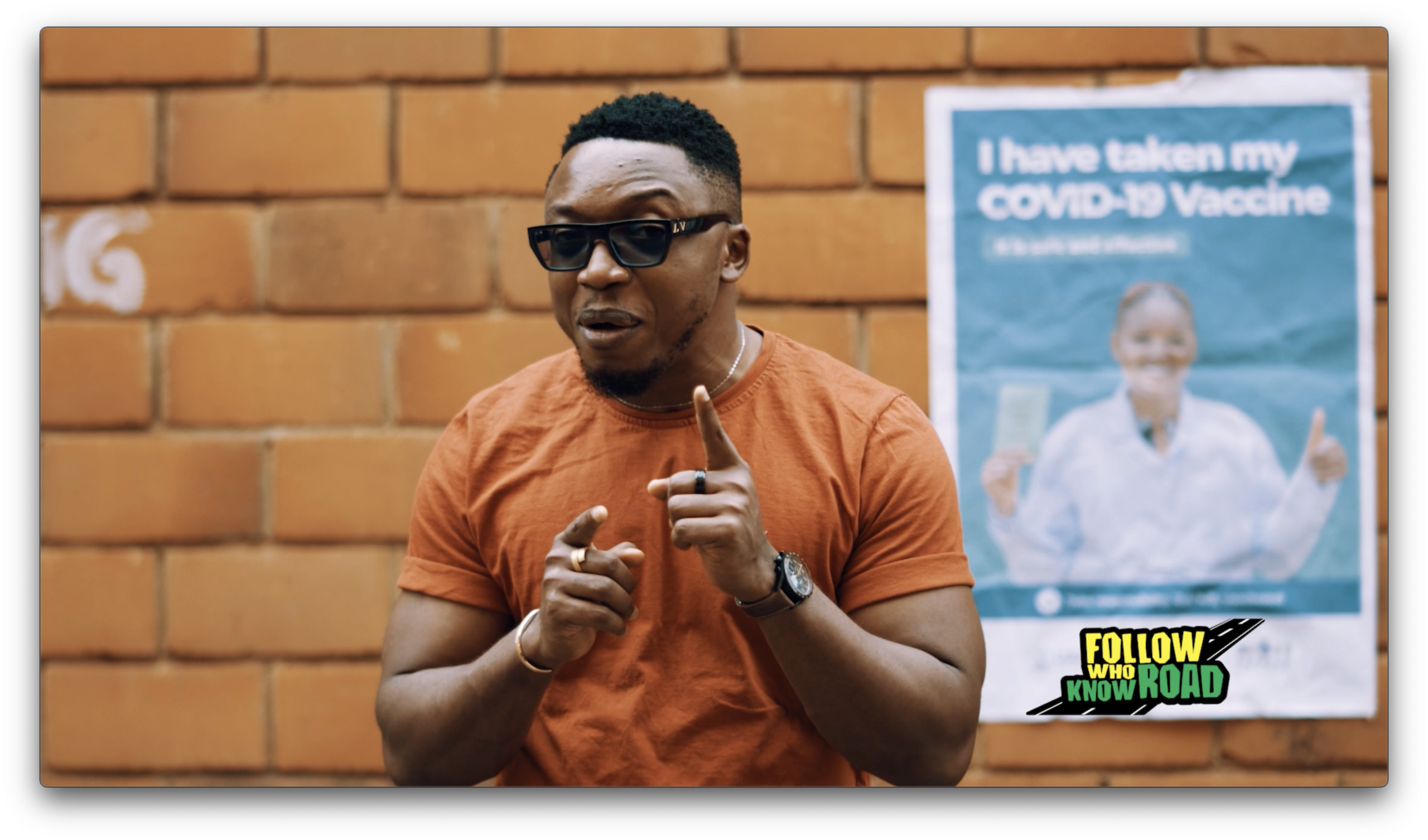In the months since the Johns Hopkins Center for Communication Programs-led Breakthrough ACTION began a COVID-19 vaccination awareness campaign in Nigeria, vaccination rates have increased by 75 percent, new research suggests.
As part of the “Follow Who Know Road” campaign developed by Breakthrough ACTION in collaboration with the Nigerian government, between Aug. 2022 and Feb. 2023 an estimated 26 million unvaccinated Nigerians heard intentional, data-informed messages encouraging them to protect themselves and others. The idea for the campaign came from vaccine hesitancy insights and data suggesting that people would be more likely to get the vaccine if they knew it could prevent their loved ones from getting sick.
More than two in three unvaccinated people exposed to the campaign showed a positive change in their vaccine intentions and behavior, according to an assessment done by Kantar, a data analytics and brand consulting company. Of those unvaccinated people who heard the campaign on the radio or on television, 14 million received a vaccine soon after and five million more said they wanted one as soon as possible. This level of outreach was possible even in the midst of a public health emergency.
“Follow Who Know Road” is Nigerian pidgin for listening to trusted voices of expertise and experience, in this case when it comes to being protected from COVID-19. It’s also a reminder that by following those who know, misinformation can be avoided.
“This campaign has been really effective and has resonated with people, which is clear from the Kantar data,” says CCP’s Mwikali Kioko, a senior program officer. “We were very intentional about the types of characters we selected, and the types of things they said during the campaign based on theory and data, so it was very much CCP putting into practice our social and behavior change best practices.”
The campaign, a redemption story told in 60-second TV and radio spots over the course of nine months, follows a character named “Madam Naija,” a trusted community leader who is skeptical about COVID and the vaccine, gets COVID-19, infects her family, gets vaccinated and finally becomes a champion in the community for the COVID-19 vaccine.
Each of the nine spots addresses the predictive factors from the data. For example, based on an insight that health care workers are a trusted source of information, a well-respected Nigerian doctor and social media influencer, “Aproko Doctor,” serves as one of the faces of the campaign.
The spots have been aired across 77 radio stations across Nigeria reaching an estimated 33 million people. The TV spots were aired on twelve TV stations, reaching an estimated 73 million people. The spots have been translated into 12 languages. Nigeria is home to more than 213 million people.
In developing the campaign, the Breakthrough ACTION-Nigeria team shaped its work around a WHO model called the 3 Cs: confidence (in the safety and efficacy of vaccination), complacency (convincing people to take action) and convenience (making it easy to access the vaccine). Stakeholders came together to develop creative concepts that were then tested with the intended audiences. After some tweaking, Follow Who Know Road was launched.
In the current climate, says CCP’s Olayinka Umar-Farouk, the project’s risk communication technical lead, social media has given many more people the platform to express their beliefs publicly. But not all of them actually have the expertise to give accurate guidance. One goal of the campaign is to help people know who to follow.
“Listening to anyone and everyone has costs, including lives lost, so there’s a need to educate people on who they can really trust and how they can make sure they’re listening to the right messenger, not just the one with the loudest voice,” she says.
CCP’s Justin DeNormandie, who works in Nigeria as an SBC technical advisor, said Follow Who Know Road is an example creating a campaign that serves as a vehicle to address a lot of messages but still in a focused way, with each spot delivering a different message on the theme.
“We knew the process very well, but it’s the end result that shows us that we achieved what we set out to do,” he said.





